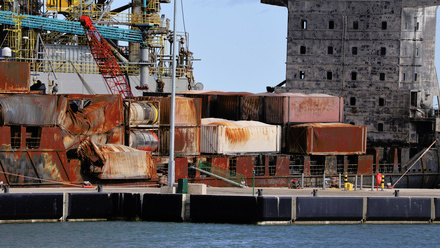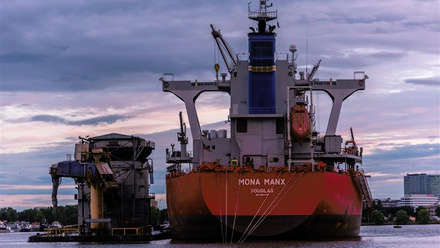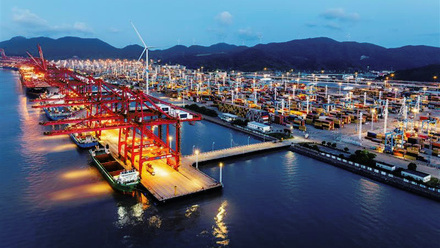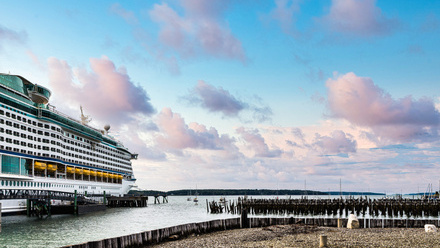Bad weather in Atlantic causes fatality and serious injury
The need to ensure all crew are involved in risk assessment discussions for heavy weather was one of the recommendations following the tragic incident on container vessel Lucie Schulte back in April 2023.
Going above and beyond the call of duty is admirable in many cases, but in shipping, there are many examples of situations going awry because of exactly this impulse. Two crew members on Lucie Schulte, an experienced bosun and a young ordinary seaman (OS), went out onto the forecastle deck to fix a malfunctioning ventilator. Unknowingly, they were contravening a direct instruction from the ship’s master – but had not been party to the discussion. Only one came back alive.
A malfunctioning mushroom vent on the forecastle of Lucie Schulte was permitting water ingress into the bosun’s store, at the bow of the ship. As the vessel journeyed from Bremerhaven, Germany, to Veracruz, Mexico, departing on 29 March 2023, it encountered rough seas and high waves from the voyage outset.
As the ship rolled through swells up to 8m high, the master temporarily suspended work on exposed decks. However, after the vessel had left the English Channel on 3 April 2023, the chief officer (CO) deemed the weather to have improved, allowing some deck work at the more sheltered aft section of the vessel to resume – although this was not communicated back to the master.
During the afternoon, the bosun entered the forecastle bosun store to collect tools for de-rusting work. There, he noticed water on the floor, which had entered through the faulty mushroom ventilator overhead. The bosun and OS made their way to the exposed forecastle deck to investigate. They donned raincoats, anticipating sea spray, but neglected to bring walkie-talkies.
Neither the bosun nor the OS had informed the officer on watch (OOW) or CO about the decision to go out on the deck and fix the ventilator. Had there been a conversation, they might have been informed of the master’s instruction not to go out on the deck, issued while they were not present.
The bosun was squatting by the leaking mushroom ventilator when a wave hit the starboard bow. Washing over the deck, the bosun and OS were both likely hit resulting in severe injuries.
Some time later, at around 14:00, the bosun was found disoriented with a head injury near the accommodation area, while OS was later discovered unconscious and bleeding on the forecastle deck. The OS had suffered acute trauma and, despite CPR efforts, was pronounced dead at 16:30. The bosun was airlifted to Lisbon, Portugal, for treatment.
The bosun suffered a head injury and temporary memory loss but recovered following medical care. The vessel had diverted course to facilitate medical evacuation and body repatriation before continuing its voyage.
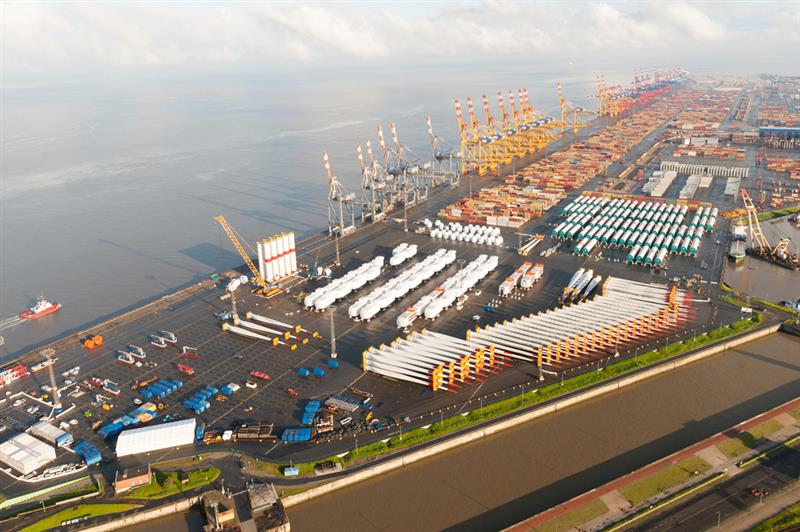
Unplanned and unsupervised inspection
Even if it had proven impossible to fix conventionally, the mushroom vent could have been addressed by as modest a solution as stretching a tarpaulin over it to prevent water ingress. The Transport Safety Investigation Bureau (TSIB) investigation concluded that the accident was largely the result of an unplanned and unsupervised inspection in unsafe conditions — an effort driven by initiative but executed without adequate risk assessment.
Poor communication was also at fault. Neither the bosun nor OS had been involved in the heavy weather risk assessment discussions held earlier in the voyage. To address this gap, the TSIB recommended that all crew members, regardless of rank or duty, be included in risk assessments to ensure a shared understanding of operational risks and responsibilities.
The ship’s management company responded with a series of measures aimed at reinforcing crew safety, particularly during adverse sea conditions. A general safety alert was issued across the fleet, reminding crews to exercise caution during heavy weather and to strictly follow operational protocols. The company also reviewed and amended its Safety Management System (SMS) procedures to explicitly prohibit any deck work during rough seas unless necessary to prevent imminent danger.
The revised policy now requires verification that all deck openings, including ventilators, are properly secured.
Additionally, the company updated its risk assessment documentation, adding more detailed controls for navigation and operations in heavy weather. It introduced a new "Permit to Work on Deck in Heavy Weather" form, which outlines specific safety checks including proper communication tools, reporting protocols, and the use of visual warnings before any deck activity is authorised.
Tell us what you think about this article by joining the discussion on IMarEST Connect.
Newsletter and main image: container ship in poor weather. Credit: Shutterstock.
Inline image: Bremerhaven port, Germany, from where the Lucie Schulte departed in April 2023. Credit: Shutterstock.

